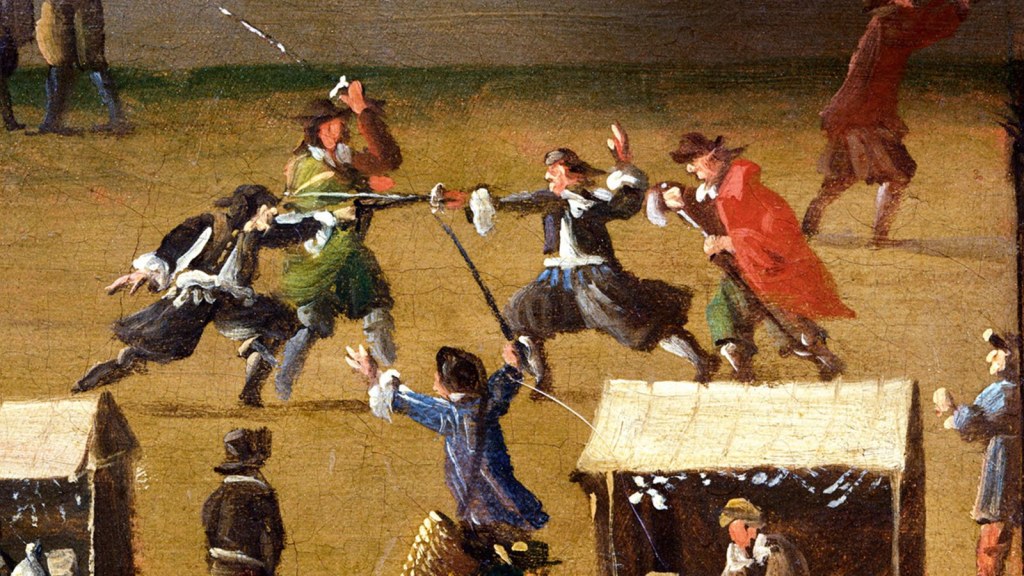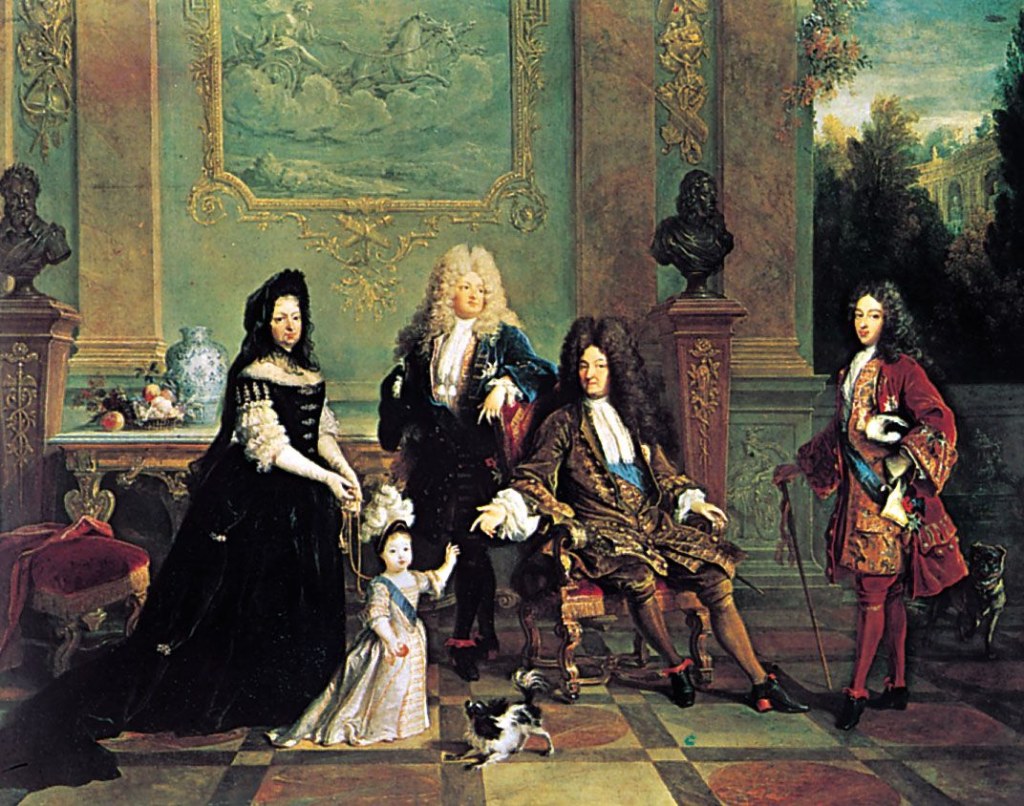French Politics in the 1600s
Introduction
Dear Readers,
Welcome to our in-depth exploration of French politics in the 1600s. In this article, we will delve into the key events, influential figures, and significant policies that shaped the political landscape of France during this period. By understanding the political developments of the 1600s, we can gain insights into the historical context and the foundation of modern French governance.

Image Source: nationalgeographic.co.uk
Now, let’s embark on this journey to discover the intricacies of French politics in the 1600s.
Overview
To comprehend the political dynamics of the 1600s, it is essential to examine the primary actors, events, and factors that influenced French politics during this era. The table below provides a comprehensive overview of the key aspects of French politics in the 1600s:
Aspect
Description
Monarchy
The centralization of power under the Bourbon dynasty.

Image Source: britannica.com
Cardinal Richelieu
The influential chief minister who consolidated royal authority.
Thirty Years’ War
The conflict that significantly impacted French foreign policy.
Edict of Nantes
The religious tolerance policy enacted by Henry IV.
Palace of Versailles
The opulent seat of power and symbol of monarchic authority.
Mercantilism
The economic doctrine focused on state-controlled trade.
What were the French politics of the 1600s?
🔍 The politics of France in the 1600s were characterized by a strong monarchy and centralization of power. The Bourbon dynasty played a pivotal role in consolidating authority and implementing policies that shaped the nation’s trajectory.
🔍 Under the leadership of Cardinal Richelieu, who served as the chief minister to King Louis XIII, the monarchy gained even greater control over the country’s administration and foreign affairs.
🔍 The political landscape was also significantly influenced by the ongoing Thirty Years’ War, which involved various European powers and had profound consequences for French foreign policy.
Who were the key figures in French politics during the 1600s?
🔍 One of the most influential figures in French politics during this period was Cardinal Richelieu. As the chief minister to King Louis XIII, he implemented policies that strengthened the monarchy and centralized power.
🔍 King Louis XIV, also known as the Sun King, played a crucial role in shaping French politics in the latter half of the 1600s. His reign was marked by the construction of the opulent Palace of Versailles and the expansion of French influence abroad.
🔍 Jean-Baptiste Colbert, the Minister of Finance under Louis XIV, implemented mercantilist policies that aimed to boost France’s economy and establish it as a dominant global power.
When did French politics in the 1600s take place?
🔍 French politics in the 1600s spanned the entire century, from 1600 to 1699. It was a period of significant political developments and transformations that shaped the nation’s history.
Where did French politics in the 1600s occur?
🔍 French politics in the 1600s primarily unfolded within the borders of France, particularly in the royal court of the Bourbon monarchy. However, the nation’s political decisions and actions also had far-reaching consequences in Europe and beyond.
Why were French politics in the 1600s significant?
🔍 French politics in the 1600s were of great significance as they laid the foundation for the centralized system of governance that would shape the country for centuries to come. The policies and institutions established during this period continue to influence French politics to this day.
🔍 The political developments of the 1600s, such as the centralization of power, religious policies, and economic doctrines, played a crucial role in shaping France’s role as a major European power and its diplomatic strategies.
How did French politics in the 1600s impact society and governance?
🔍 The centralization of power in the monarchy during the 1600s led to greater control over society and governance. The establishment of the Palace of Versailles as the seat of power symbolized the monarch’s authority and reinforced the hierarchical structure of French society.
🔍 The religious policies of the 1600s, notably the Edict of Nantes, provided a degree of religious tolerance and stability, although it was later revoked by Louis XIV. This had significant implications for religious minorities and the overall social fabric of France.
🔍 The economic doctrine of mercantilism promoted by Jean-Baptiste Colbert aimed to boost France’s economic strength through state-controlled trade. This policy had both advantages and disadvantages for the French economy and its citizens.
Advantages and Disadvantages of French Politics in the 1600s
Advantages:
🔍 The centralization of power allowed for more efficient decision-making and implementation of policies.
🔍 The religious tolerance policy, initially established by the Edict of Nantes, contributed to a more harmonious society.
🔍 Mercantilist policies aimed to bolster France’s economic strength and establish it as a dominant global power.
Disadvantages:
🔍 The absolute monarchy limited individual freedoms and hindered political participation.
🔍 Religious conflicts persisted despite the initial religious tolerance policy, leading to social tensions and divisions.
🔍 Mercantilism favored particular industries and stifled free trade, leading to economic inequality and inefficiencies.
Frequently Asked Questions (FAQs)
1. Was the monarchy the sole governing body in France during the 1600s?
Yes, the monarchy held significant power and authority during this period, although it did rely on various advisors and ministers to govern effectively.
2. How did the Palace of Versailles contribute to French politics in the 1600s?
The Palace of Versailles served as the center of political power and symbolized the grandeur of the monarchy. It allowed King Louis XIV to exert control and influence over the nobility.
3. What impact did the Thirty Years’ War have on French politics?
The Thirty Years’ War influenced French foreign policy and allowed France to expand its influence in Europe. It also contributed to France’s emergence as a major European power.
4. How did the Edict of Nantes affect religious minorities in France?
The Edict of Nantes initially granted religious tolerance to Protestants in France. However, it was later revoked by Louis XIV, leading to the persecution of religious minorities and their migration to other countries.
5. What were the long-term consequences of mercantilism in France?
Mercantilism stimulated economic growth and helped establish France as an economic powerhouse. However, it also led to trade imbalances, restricted economic opportunities for certain groups, and hindered innovation.
Conclusion
In conclusion, the politics of 1600s France were characterized by a strong monarchy, centralization of power, and significant developments in religion, economics, and foreign policy. The policies and actors of this era continue to shape modern French governance and society. By understanding the intricacies of French politics in the 1600s, we gain valuable insights into the nation’s history and its enduring influence on the world stage.
Final Remarks
Dear Readers,
Thank you for joining us on this exploration of French politics in the 1600s. We hope that this article has provided you with a comprehensive understanding of the key events, figures, and factors that shaped the political landscape of France during this period.
As always, remember that history serves as a guide to the present and future. By studying the past, we can gain valuable insights and make informed decisions that contribute to a better society.
Should you have any further questions or wish to delve deeper into this topic, please do not hesitate to reach out to us. We value your curiosity and engagement.
Until our next journey into history, farewell!